Academics
Projects courses and services
We believe that it is very important to encourage the favela population to break the stigma that society has of being located in the marginalised areas of Rio de Janeiro. We do this by promoting education as a way out, so to speak, and as a necessary tool to improve the quality of life. To help people do this, SER offers courses and services in a range of areas including sports, dance, foreign languages, vocational training, social services, psychological support and leisure.
Current Projects
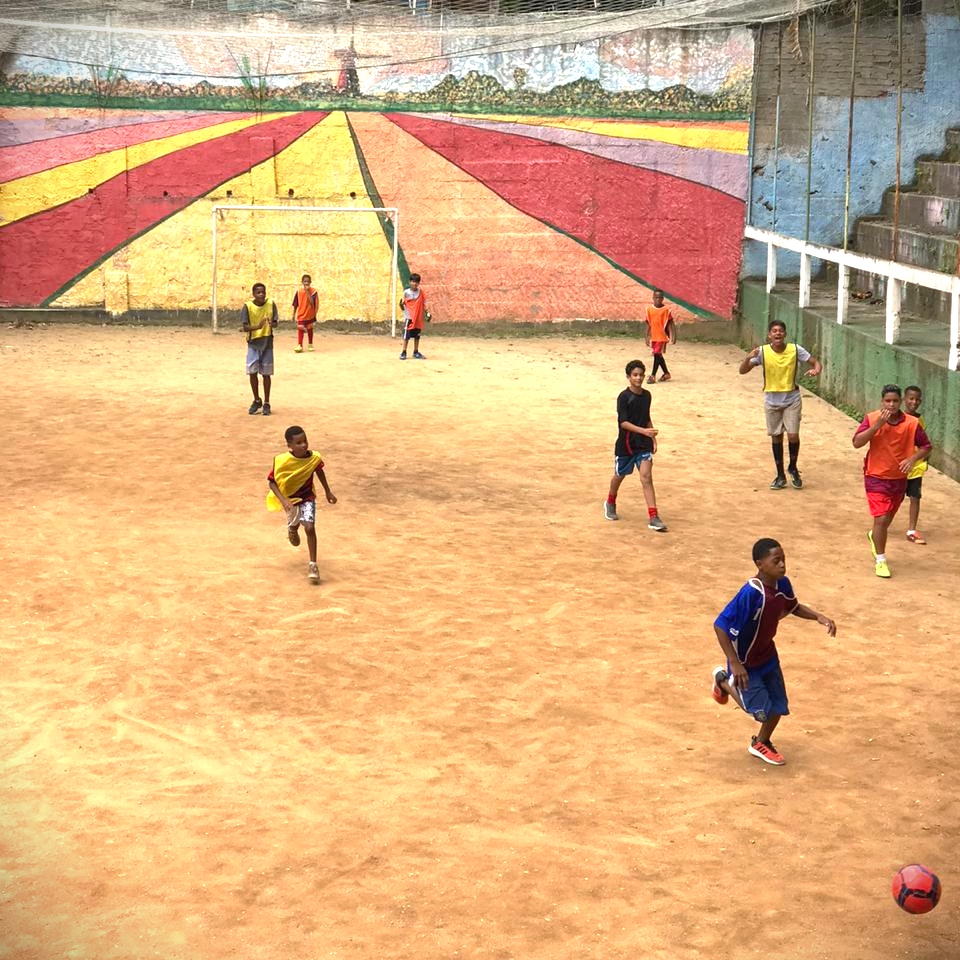
Football
As a child, António Alelluia was a very big football fan and enjoyed playing football professionally and privately. However, he always thought it was a pity that the boys of the favela never had a proper place to play their favourite sport. For this reason, he thought it was very important to build a pitch where the local boys could attend football classes and practice. Today, football classes for boys aged about seven to eighteen are held daily near the NGO. This is really special because the children find here a place where they can freely enjoy themselves and express themselves physically.
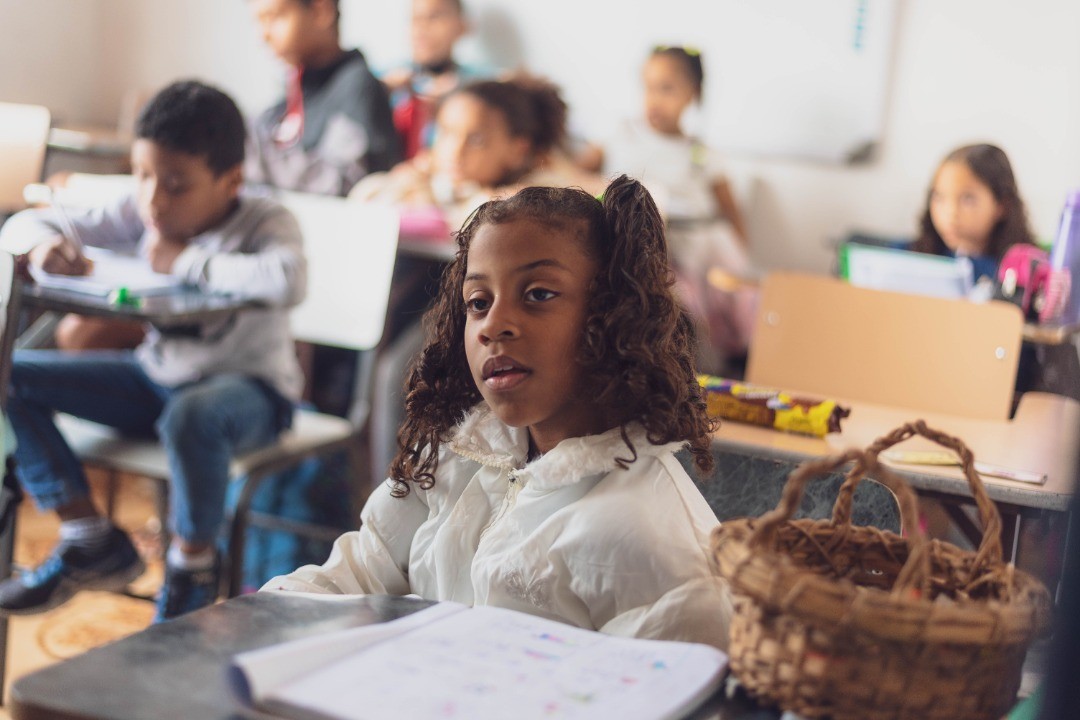
Education for Tomorrow
The Education for Tomorrow Project emerged when we realized that the deficiency in reading is one of the greatest problems, if not the greatest, of the educational system in Brazil. We have today more than 14 million illiterate people in the country and, unfortunately, with the closing of schools during the pandemic, this number tends to grow. We know that literacy is a fundamental process in the student's life. First, the student needs to learn how to read, and then he will read to learn all the other subjects. Without confidence and fluency in reading, the child develops low self-esteem, feels incapable, and does not identify school as a place of pleasure, but as a place of suffering. We work with children between 8 and 13 years old in classes of 30 students. Each class has 9 hours of class per week, which allows us to develop a work that corresponds to what would be a literacy class.
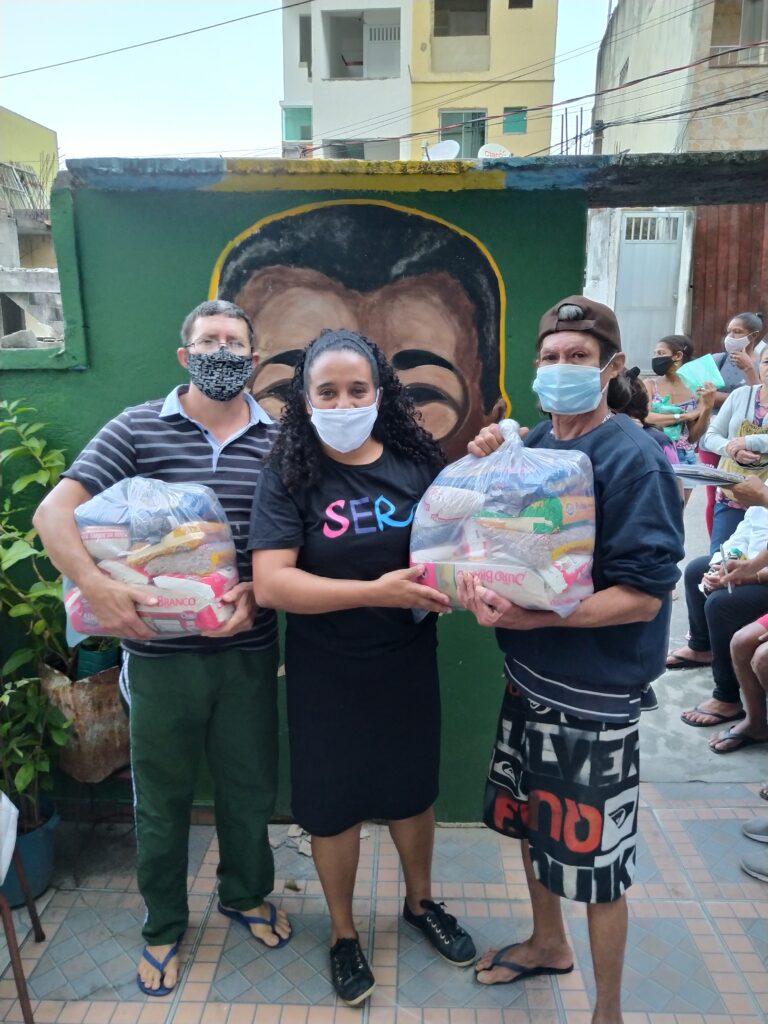
Old Projects
Due to the corona pandemic, many activities had to be stopped. Since the NGO was closed during the whole time, the restart was difficult. Nevertheless, the inhabitants of Vidigal could be supported in this difficult time by the distribution of basic supply packages.
Here you can find some activities that have taken place in the NGO in the past years:
This area aims to provide care and support to children and adults of the favela who wish to continue their vocational training in selected areas. It provides citizenship-related training to local people, most of whom do not have the financial means to acquire vocational qualifications. This serves to improve their employment opportunities in an increasingly difficult labour market. One example is Karina, who has been working at the NGO for some time. She wants to be a secretary, but did not have the opportunity to get training until the NGO offered its services. Now she has vocational training and is the NGO’s secretary.
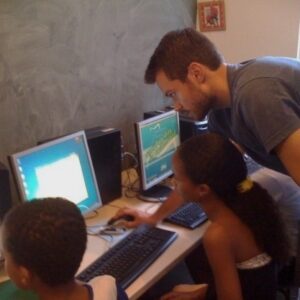 Since technology is an important part of our modern lifestyle, being able to use a computer is very important for our development. In poor areas like the favelas, some people don’t even know how to turn on a computer because of the lack of technical facilities. Here at ONG they teach many classes for old and young students so they can learn the basics of computer skills. There is a selection of fully functional computers, all donated to the project by the local bank ‘Banco do Brasil’, which are used in classes during the day and in the evenings. This subject is particularly popular with younger students as it allows them to feel more connected to the modern world and have fun while learning.
Since technology is an important part of our modern lifestyle, being able to use a computer is very important for our development. In poor areas like the favelas, some people don’t even know how to turn on a computer because of the lack of technical facilities. Here at ONG they teach many classes for old and young students so they can learn the basics of computer skills. There is a selection of fully functional computers, all donated to the project by the local bank ‘Banco do Brasil’, which are used in classes during the day and in the evenings. This subject is particularly popular with younger students as it allows them to feel more connected to the modern world and have fun while learning.
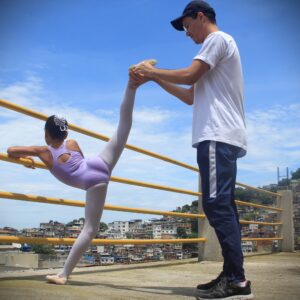 This subject is very popular with the younger girls in the community as they have the opportunity to learn a culturally very different dance form. The NGO, which has its own practice space for the students, gives weekly classes. The profiles of our ballerinas are different from the stereotypical light-skinned and thin dancers. Through these classes, the girls are taught citizenship and human rights as well as dance. The NGO’s psychologist holds weekly talks with the students’ parents.
This subject is very popular with the younger girls in the community as they have the opportunity to learn a culturally very different dance form. The NGO, which has its own practice space for the students, gives weekly classes. The profiles of our ballerinas are different from the stereotypical light-skinned and thin dancers. Through these classes, the girls are taught citizenship and human rights as well as dance. The NGO’s psychologist holds weekly talks with the students’ parents.
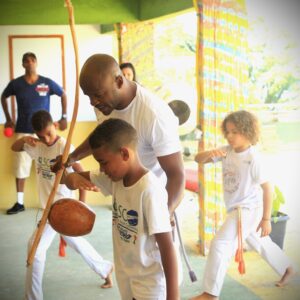 In addition to ballet, the famous Brazilian martial art/dance form is also taught in classes at the NGO on Wednesday and Friday evenings. These classes will help the students learn about their own culture and heritage, how dance was created by African slaves brought to Brazil from Africa and other countries during the colonial period. The children will also learn to understand the value of building friendships and discipline.
In addition to ballet, the famous Brazilian martial art/dance form is also taught in classes at the NGO on Wednesday and Friday evenings. These classes will help the students learn about their own culture and heritage, how dance was created by African slaves brought to Brazil from Africa and other countries during the colonial period. The children will also learn to understand the value of building friendships and discipline.
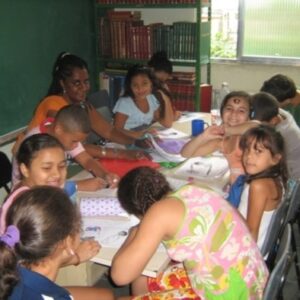 Learning a foreign language is very important these days as the world’s cultures continue to collide and mix. At Alzira de Aleluia, there are weekly classes that teach Spanish, English and French for anyone who wants to learn another language. This is where volunteers become particularly helpful. Who better to teach a foreign language than someone who speaks it as a mother tongue?
Learning a foreign language is very important these days as the world’s cultures continue to collide and mix. At Alzira de Aleluia, there are weekly classes that teach Spanish, English and French for anyone who wants to learn another language. This is where volunteers become particularly helpful. Who better to teach a foreign language than someone who speaks it as a mother tongue?
